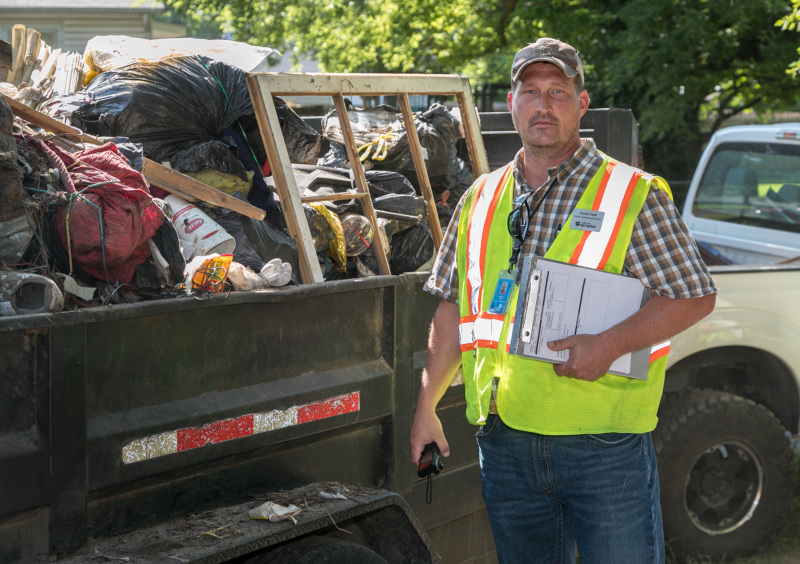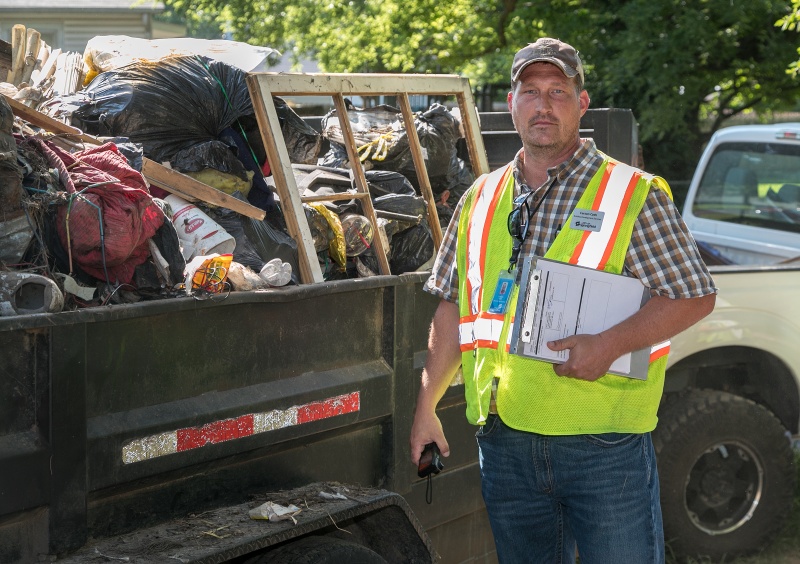
Thanks to additional resources allocated by City Council over the last two years, the City’s Building Development Services Department is taking a proactive approach to code enforcement regarding trash and solid waste accumulation in yards, alleys and driveways.
Up to four two-person inspector teams have been driving neighborhood streets since early summer and rating GIS-mapped properties in real time with a tablet computer as heavy, medium or light for trash accumulation.
“A property rated as heavy has at least one pickup-truck full of trash that needs to be hauled away,” says BDS Director Dwayne Shmel. “A medium property would have about half a truck full of trash, and one rated as light would have a bag of trash, or maybe a mattress or two in the yard.”
Shmel says his inspectors evaluated the city north of Chestnut Expressway (18,205 properties) and rated m3,305 (18.2%) for trash accumulation. The next swath of town to be evaluated will be Chestnut Expressway south to Sunshine Street this fall, extending south after that.
Property owners with trash violations can expect a notice to be posted in their yard. If the trash isn’t cleaned up within 15 calendar days, the City will have a contractor clean it up and recoup the cost of the abatement via a property tax lien through the Greene County Assessor’s Office.
Residents are encouraged to take advantage of the City’s neighborhood cleanup program, which offers free trash and yard waste disposal to registered neighborhoods.
What’s considered trash?
- Rubbish, trash and debris: can be remains of something broken down, piling trash, litter or solid waste in the yard, having decaying animal or food waste, and various other trash materials.
- Lumber, construction material, firewood and bricks/blocks: can be lumber or firewood that is not stacked six inches off the ground, bricks or concrete blocks that are not stacked and any lumber, construction material or wood that is rotting or deteriorating.
- Indoor furniture.
- Derelict automobiles, tires, equipment, machines or scrap metal.
- Appliances, electronics and other indoor items.


